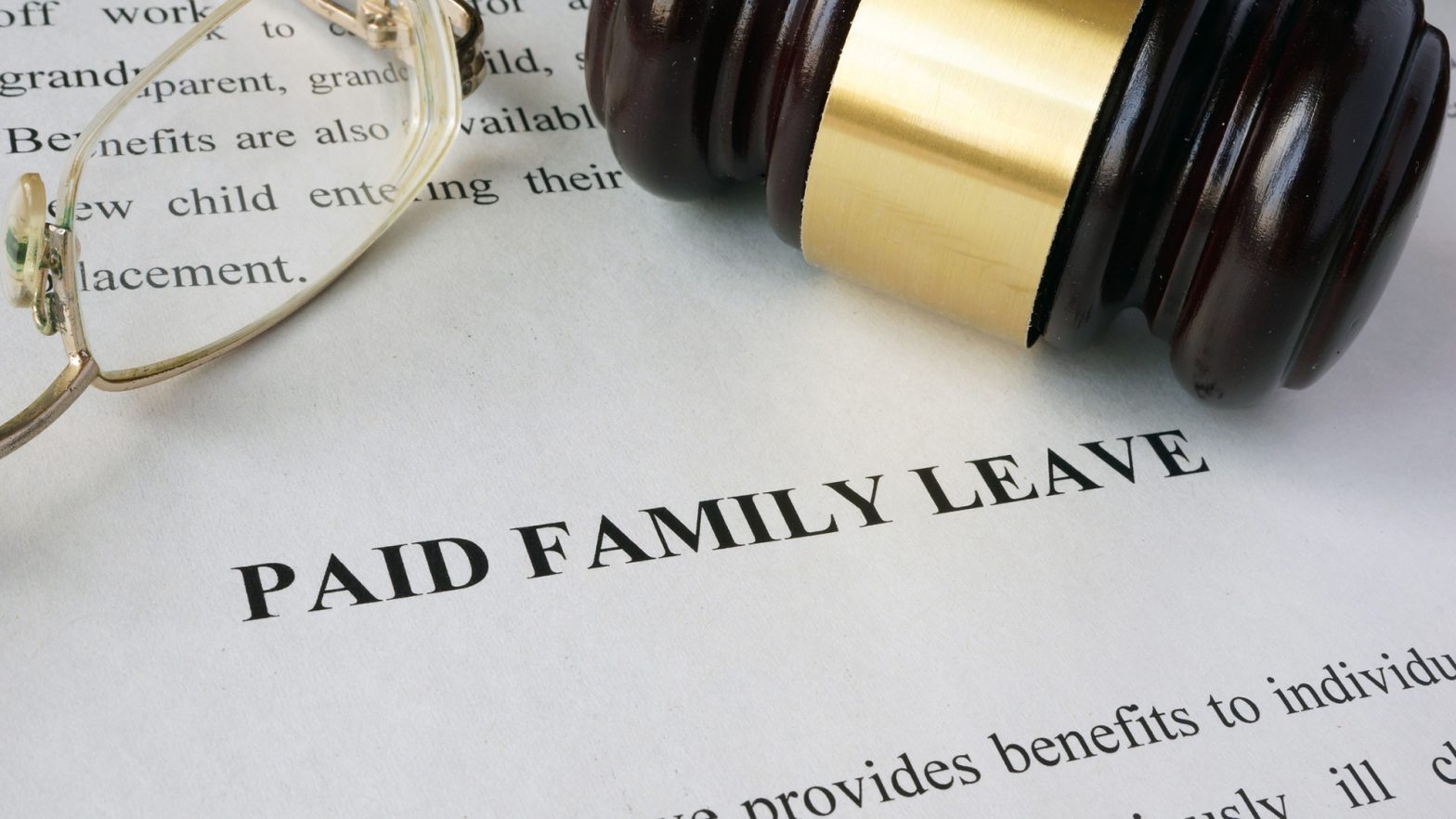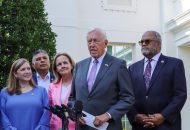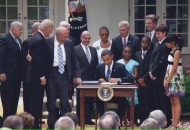Paid Family Leave Promotes Health Equity and Improved Public Health
COMMENTARY

Imagine the terrible stress of having to choose between paying the rent or caring for a sick child, buying heating oil or bonding with your new baby, making a car payment or seeking care after being impacted by family violence.
For those thousands of Americans living paycheck to paycheck, eliminating those impossible choices can mean the world. When workers do not have access to paid family leave, they are forced to choose between taking care of their health or the health of their loved ones and going to work, which can further compromise their health and the health of their loved ones.
As someone dedicated to creating an environment where everyone can attain optimal health regardless of race, ethnicity or socioeconomic status, I understand that paid leave is essential to addressing health equity.
There are several reasons why paid family leave is a health equity issue.
First, paid family leave addresses one of the most significant social determinants of health — economic security. A paid leave policy promotes health equity because it allows all workers, regardless of their socioeconomic standing, to take care of the health and well-being of their families without fear of losing their job or income.
Second, paid leave addresses the “benefits gap” between low-wage workers and higher-income workers by allowing families to take care of their health while reducing short and long-term financial instability and family stress. Missed workdays are particularly burdensome for women of color because they disproportionately hold low-wage jobs and are less likely to have paid sick leave. In the United States, only 6% of low-wage workers have access to paid family leave, while nearly 50% of low-wage workers are women of color.
Paid family leave also improves holistic health outcomes for the family, children and new mothers.
When parents can take paid time off from work to focus on their health and their children’s health, all members of the family experience increased positive health outcomes. Instances of infant mortality decrease as more new mothers have an opportunity to stay home and care for infants. Men who take two or more weeks off from work after the birth of a child are, even nine months later, more involved in the direct care of their children than fathers who take no leave.
Paid leave programs also provide working adoptive parents with the time to develop a secure bond with their adopted children. Doing so plays a pivotal role in decreasing distress, anxiety or illness brought on by stress for both adoptive parents and children.
Paid leave also helps to reduce rates of socioeconomic-driven child neglect.
An extra week of leave is associated with a 2%-3% reduction in infant child mortality. An additional 10 weeks of paid family leave for parents decreases post-neonatal deaths by up to 4.5% and child fatalities by up to 3.5%. Children whose mothers take longer leave from work are more likely to be not only breastfed but for a longer time, which is associated with better health outcomes for children.
A California study showed that self-reported breastfeeding rates increased by approximately one-third after the state instituted a paid leave plan. Black and Hispanic mothers are more likely to experience the burden of “suboptimal breastfeeding,” which was associated with greater maternal disease burden, deaths and medical costs. An increase in paid leave in the first postpartum year is associated with reduced depressive symptoms until six months postpartum.
At the start of 2022, 10 states and the District of Columbia have paid leave policies in place with active programs in California, Massachusetts, New Jersey, New York, Rhode Island, Washington, the District of Columbia and Connecticut. Programs in Oregon, Colorado and Maryland have yet to become active.
Connecticut’s robust paid leave program is an excellent example of a comprehensive paid leave program, checking all the boxes and offering benefits to those who need it most, thus working toward closing the socioeconomic-driven health gap.
Facilitated by the Connecticut Paid Leave Authority, Connecticut Paid Leave offers benefits for categories of employees not considered in many other paid leave programs, such as military families and those impacted by family violence. Fully employee-funded, CTPL expands the definition of family from immediate, blood-relatives to include individuals related by affinity whose close association with the employee proves to be the equivalent of blood-relatives.
If the nation takes one thing from CTPL, it should be the benefits for parents, whether by birth, adoption or foster care.
Holistically healthy parents lead to holistically healthy children.
Being a healthy parent often starts with removing the financial barriers to caring for yourself or your loved ones.
Paid leave is a vital lifeline for workers and their families and plays a pivotal role in addressing health equity and improved health for its residents, and CTPL seems to be leading the way.
For more information about the CTPL program, please visit https://ctpaidleave.org.
Dr. Tekisha Dwan Everette is the executive director of Health Equity Solutions. Before taking the helm of Health Equity Solutions, she served as the managing director of Federal Government Affairs with the American Diabetes Association. Everette worked as a government relations consultant with Drinker, Biddle, and Reath, LLP, and also worked for the Service Employees International Union, RESI, the State of Maryland, and the Manpower Demonstration Research Corporation. You can reach HES on Twitter @HealthEquityCT.
























